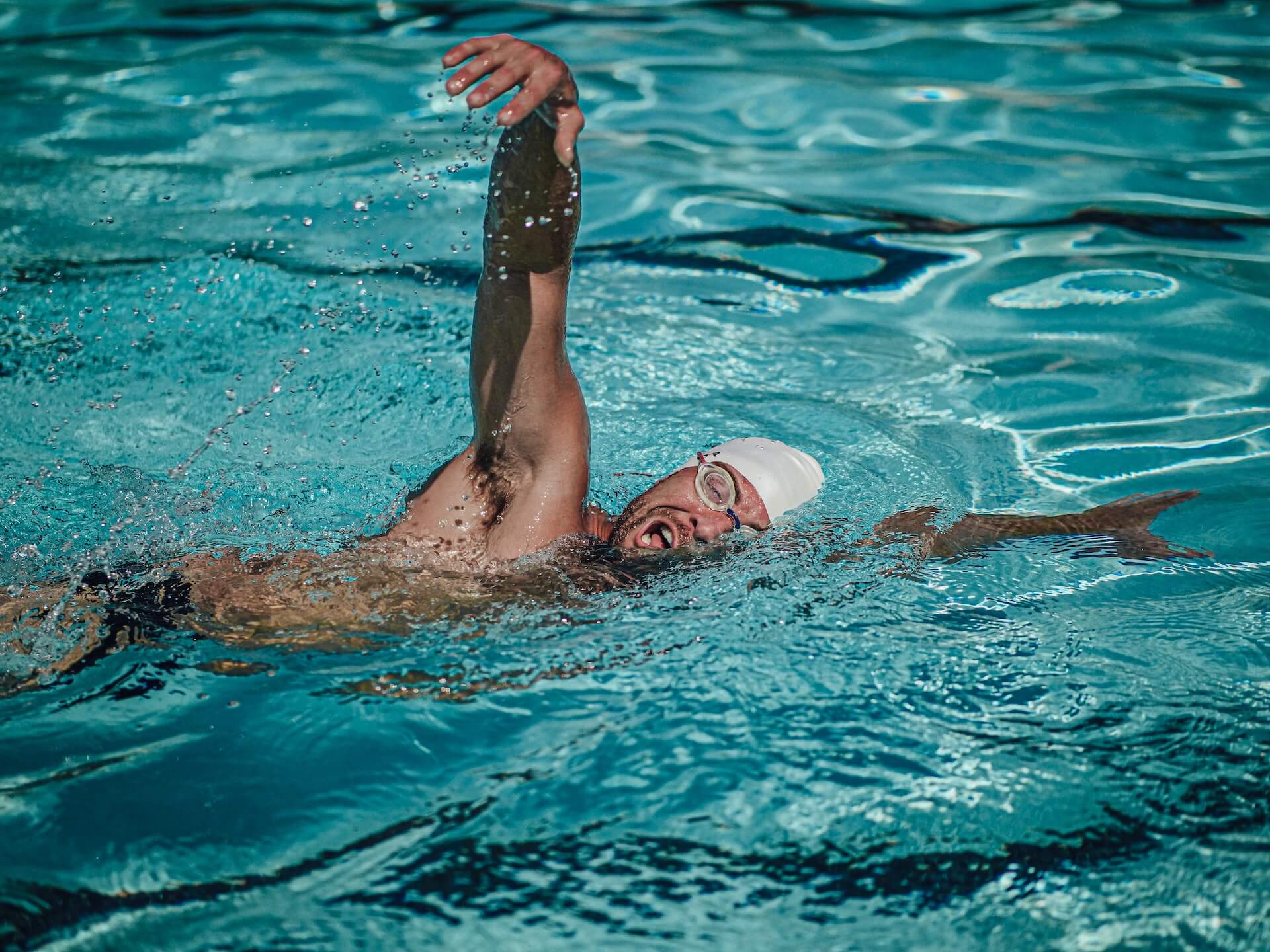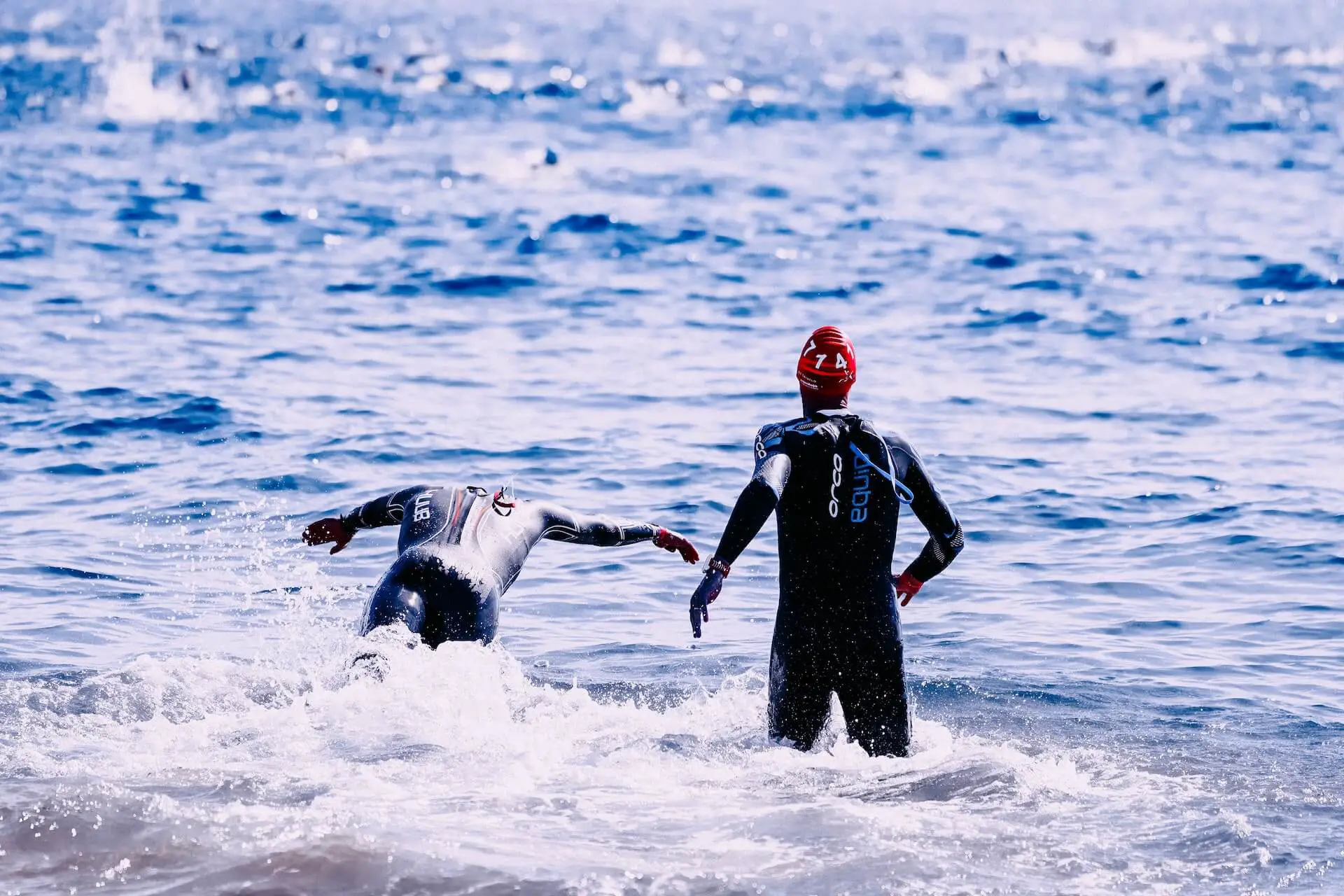Swimming in the pool is fun, but so is swimming in the ocean. Of course, nothing is stopping you from doing both. But if you could only pick one, which one is better?

From the controlled, safe environment of the pool that’s perfect for beginners and consistent training, to the natural, vast expanse of the ocean that tests your swimming prowess, and exposes you to the beautiful outdoors, there’s lots to like about both. Both venues offer unique experiences, challenges, and benefits. Whichever one is better depends on your goal or purpose.
In this article, we will be comparing the advantages and disadvantages of both swimming in the pool and the ocean to help you decide which one you’d rather do.
The Pros of Pool Swimming

Safe, controlled environment
Swimming in a pool is like riding a bike with the training wheels on. There are so many amenities offered by the pool that you simply won’t get when swimming outdoors.
To start, it’s a controlled environment where the water temperature is usually regulated, and there’s little to no current. If you start getting tired, the walls are within close reach.
If you’re feeling a bit cold, the hot tub or sauna is a few steps away. Thirsty? A water fountain is likely close by. Need to use the bathroom? Also close by.
Furthermore, there are lifeguards watching over you. Even other swimmers nearby can potentially rescue you or call for help should something go wrong.
The convenience and lack of danger allows you to swim with peace of mind, knowing that the conditions will always be favorable and you can just focus on your swimming.
Accessible for beginners
Pools provide the perfect platform for learning to swim. They are shallow enough for beginners to feel safe, and the absence of waves and marine life makes it easier to focus on the basics of swimming techniques. Many pools also offer swimming lessons for beginners, making it even more convenient to learn how to swim.
No waves or currents
One of the biggest benefits of pool swimming is the absence of waves and currents. This makes it easier to swim, especially for those who are just starting out. It also allows for more predictable and measurable performance, which is important for those training or competing in swimming events.
No marine life
Maybe you saw one too many movies and are scared of the creatures in the ocean. Well, in pools, you don’t need to worry about jellyfish stings, shark sightings, or other unexpected encounters with marine life. This peace of mind can make your swim more enjoyable and let you focus on your technique.
Allows for consistent, measured training
Swimming in a pool allows for consistent, measured training. The lanes are straight and the distance is known, which makes it possible to accurately track your progress and speed. This is particularly important for competitive swimmers who need to time their laps and keep track of their performance.
The Cons of Pool Swimming
Lack of natural elements
While the consistency of pool swimming can be a benefit for training, it can also make things a bit monotonous. There’s no change in scenery, no sounds of waves, or the feel of sand between your toes. For some, this lack of natural elements can make pool swimming feel less exciting or enjoyable than ocean swimming.
Limitations in size and depth
Pools also have their physical limits. They’re bound by length, width, and depth, which might limit your swimming options, particularly if you like diving deep or swimming long distances.
Potential for overcrowding
During peak times, pools can get quite crowded. Sharing lanes with multiple swimmers can be a challenge, and you may have to adjust your pace or path to avoid collisions. This can detract from the peacefulness of swimming and make the experience less enjoyable.
Dry skin and hair from chlorine exposure
Chlorine, a disinfectant commonly used in pools, can strip your skin and hair of their natural oils, leading to dryness and potential irritation. While you can mitigate these effects with good skincare and haircare routines, it’s still an additional consideration that ocean swimmers don’t have to worry about.
The Pros of Ocean Swimming

Enjoy the beautiful outdoors
Swimming in the ocean gives you the opportunity to connect with nature and enjoy beautiful views. Whether it’s the sun setting over the horizon, the feel of sand beneath your feet, or the sound of waves crashing on the shore, ocean swimming offers a sensory experience that a pool simply can’t match.
Take it a step further and get yourself a snorkel and snorkel mask. Then you can spend your time observing marine life as well.
Vast, unrestricted space
The ocean provides a vast, unrestricted space for swimming. You can swim as far as you want without turning back, or dive deep without hitting the bottom. The sense of freedom in the ocean can be a thrilling experience, making each swim a unique adventure.
Test the limits of your swimming ability
With its currents and waves, the ocean can present a challenge even for experienced swimmers. But it’s precisely this that can make ocean swimming so rewarding. It pushes you to adapt, to increase your stamina, and to become a more robust swimmer.
For those of you who feel pool swimming has gotten monotonous, the ocean is a new frontier for you to conquer. But don’t chase this goal recklessly, because there are many risks to ocean swimming.
The Cons of Ocean Swimming
Numerous safety concerns
While swimming in the ocean can be exhilarating, it’s not without risks. Currents and riptides can pull you out to sea, while boats and jet skis may not always see swimmers. There’s also the chance of encountering marine life, which can range from the harmless to the potentially dangerous. It’s important to be aware of your surroundings and to understand ocean conditions before diving in.
Variance in water temperature
Ocean water temperature can vary depending on the time of year and location, and it’s generally colder than pool water, which is temperature-controlled. This can be a shock to the system, particularly if you’re not used to it, and it can make swimming more challenging.
You will likely need to wear at least a thin wetsuit to stay warm. Without a wetsuit, you won’t be able to swim outside for as long because your core temperature will drop, ending a swim session early. It’s also safer to wear a wetsuit because it provides additional buoyancy, sun protection, protection from jellyfish stings, and the list goes on.
Need for higher level of skill and experience
Swimming in the ocean requires a higher level of skill and experience than swimming in a pool. You need to be able to navigate waves and currents, understand how to spot and escape riptides, and be comfortable swimming without the safety of pool edges within reach.
When something goes wrong, you need to be able to remain calm and quickly find a solution without panicking. The more experience and skill you have, the faster you can make split second decisions that will greatly improve your safety when swimming outdoors.
Lack of supervision
While many popular beaches have lifeguards, not all do, and even those that do may not have them all the time or may take too long to spot someone in distress due to the sheer size of the beach. When swimming in the ocean, you often have to take responsibility for your own safety, which can be daunting for those used to the reassurance of lifeguard-supervised pools.
Risk of getting sunburned
When you’re swimming in the ocean, you’re often out in the sun for extended periods. Without proper sun protection, this can lead to sunburn. Remember to apply waterproof sunscreen before your swim, and reapply as necessary. You should also wear a wetsuit, or at least a rash guard to cover up as much of your skin with UPF-rated swimwear.
Dry skin and hair from salt exposure
Just like chlorine in pools, salt in the ocean can dry out your skin and hair. The salt can strip away moisture and leave your skin feeling dry and tight. After swimming in the ocean, it’s essential to rinse off the saltwater and hydrate your skin and hair to keep them healthy.
The Verdict
At the end of the day, is swimming in the pool better or the ocean? It depends on what your goals are. For most people, the pool is better simply because it is so safe. Even casual beachgoers would probably rather spend their time by the shore, never venturing more than a few feet into water.
Those who are serious about actually swimming in the ocean will likely be veterans looking to challenge themselves or thrillseekers looking for the next big thing for them to conquer. They will be fewer in number, but for them, ocean swimming would be preferable to pool swimming.
Both have their unique advantages and disadvantages. As long as you are aware of them, then you can decide for yourself which one you’d rather do.
Sources:
